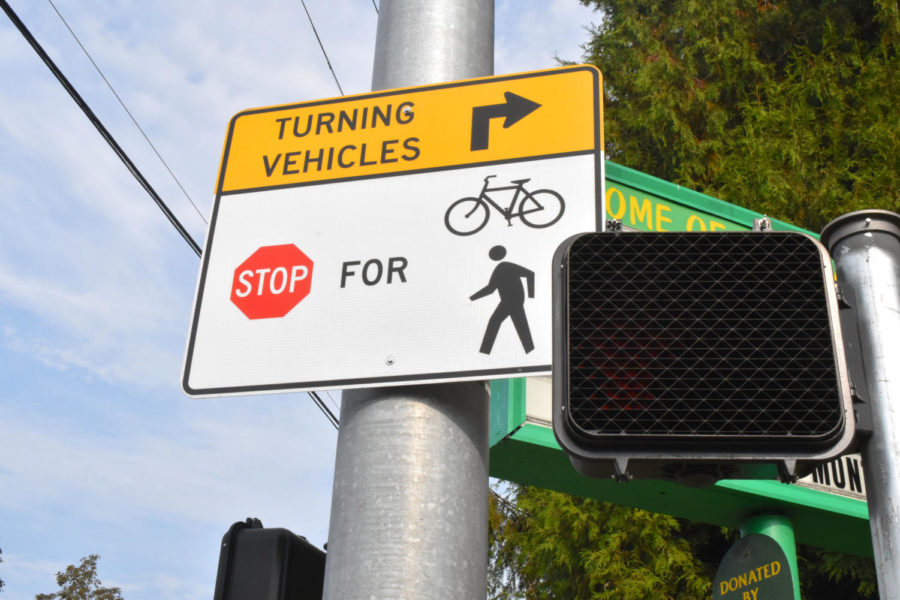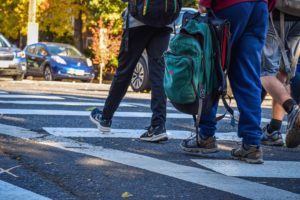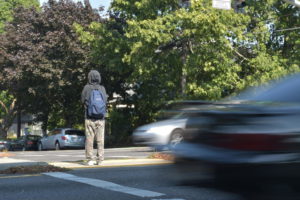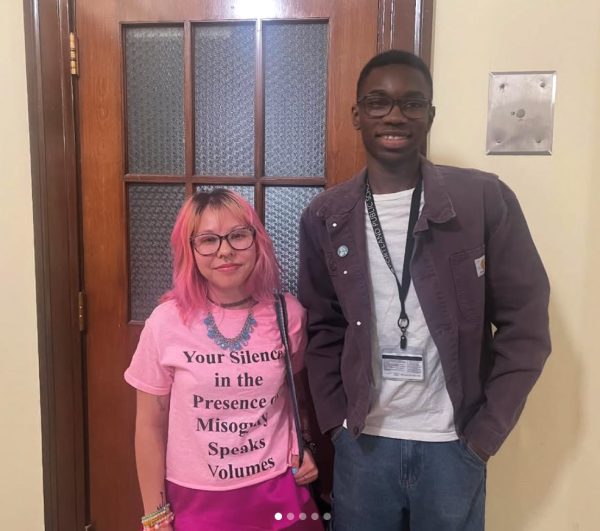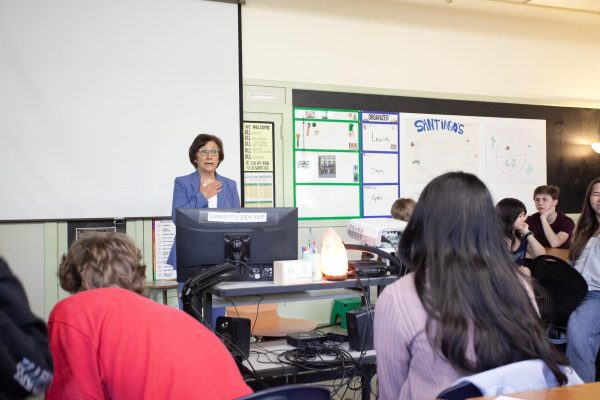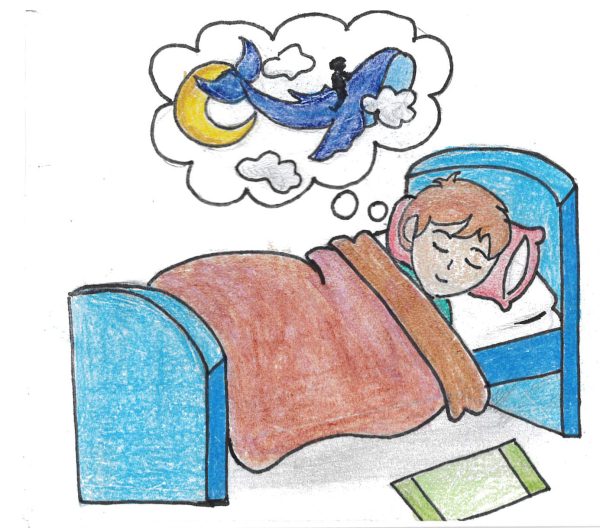ODOT and PBOT Work to Make Powell Safer
Clarion photo Irelin Barta
New sign that was put up after recent accidents involving bicyclists and pedestrians on Powell.
Ever since Sarah Pliner was killed while riding her bike on the corner of Powell and 26th in the intersection adjacent to Cleveland High School, there has been a flurry of activity in the biking advocacy community.
One group called Bikeloud PDX has been advocating for change even on this specific intersection for years, and according to a tweet from Oregon state senator Khanh Pham, “This is the third death on this stretch of inner Powell in the past year.”
On Oct. 12, a group of these activists took to the streets to hold a silent vigil for Pliner, and to continue to advocate for safer road conditions along Powell, one of the many urban highways owned by the Oregon Department of Transportation (ODOT) in Portland. Nic Cota, a board member of Bikeloud PDX claims that ODOT will ¨…Prioritize vehicle movement. That’s what their goal is. They’re all about just getting cars through and freight through.¨
In order for Powell and other roads like it to be safe, Cota and Serenity Eber, the vice chair of Bikeloud, say that ¨realigning their (ODOT) priorities is kind of a necessary item here to make sure that there’s spaces that ODOT provides for people aren’t just for moving cars.¨
This was one of the things that the protesters were doing, putting their bodies and bikes in front of the cars behind the crosswalk, in an area that used to be protected by a ¨bike box¨, which was removed by ODOT in 2018.
According to Kris Strickler, the director of ODOT, the bike boxes were removed to encourage bikers to use 28th to cross Powell, a few blocks away, but Cota said that “what you see out there in that corner where Sarah Pliner was hit and killed, that’s a brand new corner that was specifically cut back to be more forgiving for freight trucks or larger vehicles, but we know the tools and the tools are providing bike boxes.”
Additionally, Stickler was open to the possibility of returning the boxes, saying, “If somebody’s using it, right now with frequency, we need to find a way to make it safer.” However, the bike boxes have not yet been put back in.
The highest collision roads in Portland are “urban highways” owned by ODOT, roads just like Powell. Some of these urban highways may be transferred to ownership of local transportation departments, like the Portland Bureau of Transportation, (PBOT), which Serenity Eber and Nic Cota says is “A little bit better at prioritizing street space over conveyance of vehicles.”
Strickler however, says that “as we think about what it takes to actually not just redesign them and change the character, but then to eventually get to a jurisdictional transfer, it takes a significant amount of funding,” and claims that the main slowdown not just for the transfer but also for improved safety features is a lack of funding. This comes after ODOT requested an additional $120 million to fund their I-205 freeway expansion project, according to a report from Bike Portland, another advocacy group in Portland.
One tool that ODOT does have, is the urban highway blueprint, which Strickler committed to using on Powell during the town hall meeting on Oct. 20th, after repeated requests from the chair of Bikeloud PDX, Kiel Johnsen. Johnsen later stated that this commitment is one of the most important things to come out of the meeting, and that it was vital to hold ODOT accountable. According to Strickler, the urban highway blueprint was created in collaboration with local jurisdictions across the state, and aims to alter construction and design standards to accommodate urban settings rather than typical interstate highways.
Even as Strickler and ODOT try to make their roads safer, according to the Oregonian, traffic deaths in Portland are at a 30-year high, and pedestrian deaths are the highest they have been for half of a century. In addition, the highest crash rate roads in Portland are mostly ODOT owned urban highways like Powell, which Strickler said cannot be blamed on any one aspect of the roads or the drivers, but “…we know that speed is a prevailing and one of the significant factors. And so slowing speeds down, in the areas where we can, is, you know, a great first step.”
As the death toll increases more and more every year, one must ask the question, for all of its commitments, is ODOT truely equipped and prepared to execute its plans, and if not them, then who?
I mainly write stories about local government, such as the Cleveland Yondr pouch policy or the PPS budget deficit, but the story I most enjoyed writing...



